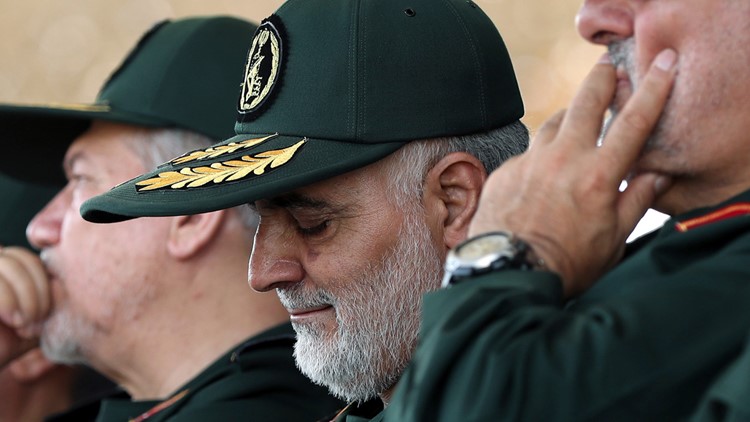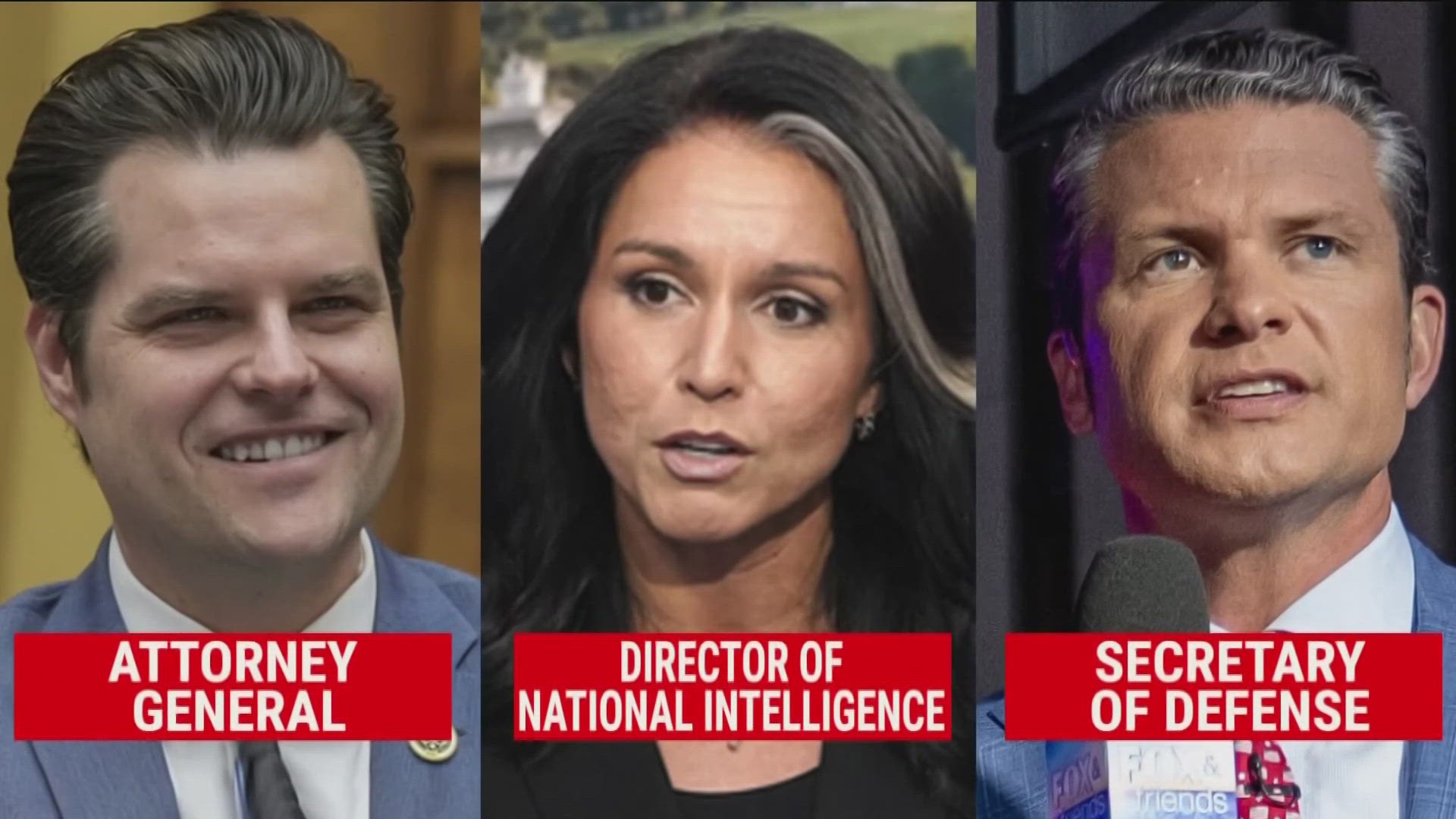Google searches for "JCPOA" spiked during President Donald Trump's Wednesday morning address responding to an Iranian missile strike on two Iraqi bases housing U.S. troops.
"The very defective JCPOA expires shortly anyway, and gives Iran a clear and quick path to nuclear breakout," Trump said. "Iran must abandon its nuclear ambitions and end its support for terrorism."
The president called on the United Kingdom, Germany, France, Russia and China to "break away from the remnants of the Iran deal, or JCPOA."
"We must all work together toward making a deal with Iran that makes the world a safer and more peaceful place," Trump said.
So, what is the JCPOA?
JCPOA stands for the Joint Comprehensive Plan of Action, established in 2015 during the Obama administration. It's also commonly referred to as the Iran nuclear deal.
Iran struck the nuclear deal in 2015 with the United States, France, Germany, the United Kingdom, Russia and China. The deal, formally known as the Joint Comprehensive Plan of Action, grew out of secret talks President Barack Obama’s administration held with Iran after President Hassan Rouhani, a relative moderate, took office.
Iran agreed to limit its enrichment of uranium under the watch of U.N. inspectors in exchange for the lifting of sanctions. International businesses rushed to do deals with Iran, most notably with billion-dollar sales by Airbus and Boeing Co.
RELATED: Iran-U.S. tensions rooted in history
Trump, who campaigned on a promise of tearing up the deal because it didn’t address Iran’s ballistic missile program or its involvement in regional conflicts, withdrew America from the accord in May 2018. That halted promised international business deals and dealt a heavy blow to Iran’s already ailing economy. In the time since, the Trump administration has said any country that imports Iranian crude will face U.S. sanctions.
Since then, Tehran has gradually rolled back its commitment to the deal.
What's happening with the JCPOA now?
On Sunday, Jan. 5, Iranian state television reported that the country would no longer abide by any of the limits of the JCPOA, triggered by the U.S. killing of Gen. Qassem Soleimani in Baghdad last week.
EU foreign policy chief Josep Borrell expressed “deep regret” at the news from Iran. He tweeted that full implementation of the nuclear deal by all parties “is now more important than ever, for regional stability and global security.”
The International Atomic Energy Agency (IAEA) told The Associated Press that it was aware of Iran's announcement, but noted that Tehran's statement “also said that Iran's cooperation with the Agency will continue as before.”
How is the rest of the world responding?
Iran’s announcement and the killing of Soleimani have sparked a flurry of diplomatic activity in Europe. Borrell has invited Zarif to Brussels, and EU foreign ministers will hold an emergency meeting on Friday to address the issue. It remained unclear Monday whether Zarif would accept the invitation.
German Foreign Minister Heiko Maas said the Europeans will talk to Iran and the U.N. nuclear watchdog and take a coordinated decision.
“This could be the first step toward the end of this agreement, which would be a great loss — and so we will weigh things up very, very responsibly,” Maas told Deutschlandfunk radio.
He noted that the agreement contains procedures to respond to such situations. They include the triggering of a “dispute mechanism” that could buy more time to help keep Iran on board.
The EU finds itself in an increasingly awkward position and has been reduced to calling for calm as it seeks to keep Iran inside the agreement and maintain good ties with Washington despite deep concern over the drone killing of Soleimani.
U.S. Secretary of State Mike Pompeo has already expressed frustration at the muted European reaction to events in the region.
“Frankly, the Europeans haven't been as helpful as I wish that they could be. The Brits, the French, the Germans all need to understand that what we did, what the Americans did, saved lives in Europe as well,” Pompeo said.
On a visit to Germany, European Commission President Ursula von der Leyen said EU commissioners would also discuss developments on Wednesday.
“The European Union has in recent years built up very reliable channels of dialogue with almost all actors in the region, which it can and must now use,” she said.
Von der Leyen declined to assess Trump’s style in threatening retaliation via Twitter, saying that “my job isn’t to evaluate – my job is to de-escalate.” She was firm in pinning the blame for the crisis on forces close to Iran.



